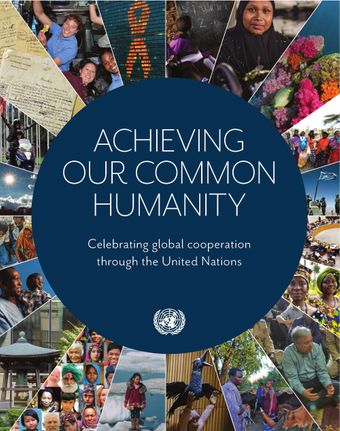- Home
- Books
- Achieving our Common Humanity
- Chapter
On the way to eradicating HIV/AIDS

- Author: United Nations
- Main Title: Achieving our Common Humanity , pp 20-25
- Publication Date: October 2020
- DOI: https://doi.org/10.18356/9b7bc82d-en
- Language: English
The acquired immunodeficiency syndrome (AIDS) is a chronic condition caused by infection with the human immunodeficiency virus (HIV). Originally a chimpanzee virus that jumped to humans through crossspecies transmission—as did the novel coronavirus disease (COVID-19) that became a pandemic in March 2020— infection with HIV has led to the death of millions of people. HIV/AIDS has been considered responsible for the single greatest reversal in modern human development, reducing life expectancy in many countries, and, at its peak in the early 2000s, depriving the hardest hit countries of skilled workers in critical sectors such as education and health due to illness and death. In the early 1980s, when AIDS was first recognized as a new disease in the United States—with similar cases reported in other areas of the world soon after, and even before HIV was identified as the cause of AIDS—the infection gave rise to fear and prejudice against certain segments of society, in particular the gay community, within which many of the first cases emerged.
-
From This Site
/content/books/9789210051491c005dcterms_title,dcterms_subject,pub_keyword-contentType:Journal -contentType:Contributor -contentType:Concept -contentType:Institution105

